Ask a Sober Oldster #18: Ana Marie Cox
"No matter what you feel, there is another feeling that will come after it. Sometimes, that might be worse! (Painful honesty!) But a lot of the time, it gets better."
This monthly interview series is a collaboration between Oldster Magazine and The Small Bow, A.J. Daulerio’s excellent newsletter about recovery and mental health, and will appear in both newsletters. Learn more about this collaboration in this Oldster podcast/videocast episode.
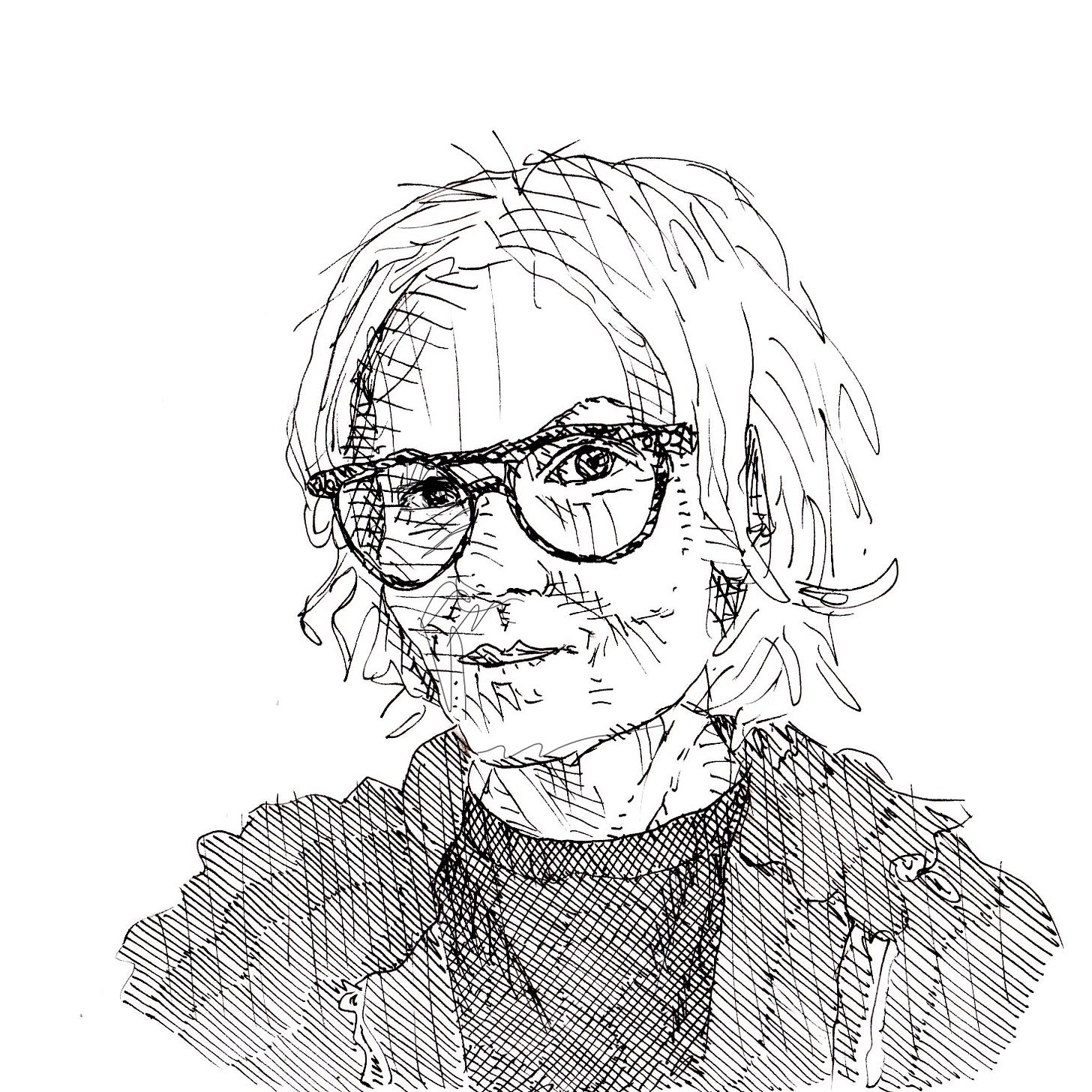
Ana Marie Cox has been a journalist in many mediums (podcasts, video, blogs, magazines) for thirty years. She’s currently a columnist for The New Republic and has two podcasts: Space the Nation and Another Day. “Ask a Sober Oldster” readers might be interested in her recovery writing workshop, which will be starting up the winter session next month.
—
How old are you, and how long have you been in recovery?
52, sober date 3/23/2011 (13 years)
How did you get there?
After a series of worsening consequences (losing jobs, DUI arrest, relationship troubles), I started "trying" to get sober in 2010. My mom developed cirrhosis around that time and I went to some AA meetings with her and Al-Anon because my therapist recommended it. I found Al-Anon tedious. (I still do.) I enjoyed AA a lot more! Those folks felt like my people. But I wasn't quite ready to call myself an alcoholic.
My bottom was a close call suicide attempt (booze and bottle of Xanax). After a five-day tour of a psych ward I was off to rehab. While there, I was diagnosed with Bipolar II and they recommended three months of residential treatment beyond the initial 30 days to get my meds straightened out and to get beyond the severe depression that followed the manic episode. I did that, then went to the recommended three months in sober living.
If you do the math, that's seven months of residential/monitored living—chore charts, curfews, roommates in the actual same room. It felt humiliating at times but I had blown up my life (including my marriage) so thoroughly, it always felt like the best option. My family wasn't going to support me if I left. I got a great job toward the end of the three months (the minimum stay) and that's when I moved into my own place and could support myself.
Looking back, I'm incredibly grateful for having spent so much time in supervised environments, chore charts and all. The structure was good, but the biggest gift might have been seeing so many people relapse—and go through a lot of trouble to relapse. One woman in my sober living house walked a mile in 100-degree Texas heat to a convenience store in order to buy liquor. Another drank Listerine. People ran away with nowhere to go. I saw the raw power of the disease.
A year into my sobriety, my mom—who had not been able to stop drinking—developed alcoholic dementia and died. That, too, gave me a sense of what would happen if I drank again.
I stay sober by working the steps. I go to meetings and usually have a sponsor (lol, that's the toughest thing for me) and sometimes have sponsees. My service work is probably the biggest part of my recovery.
Sorry, that's a whole speaker text.
My bottom was a near-thing suicide attempt (booze and bottle of Xanax). After a five-day tour of a psych ward I was off to rehab. While there, I was diagnosed with Bipolar II and they recommended three months of residential treatment beyond the initial 30 days to get my meds straightened out and to get beyond the severe depression that followed the manic episode. I did that, then went to the recommended three months in sober living.
What are the best things about being in recovery?
AA. I have a spiritual program and a series of recommendations that allow me to come back to sanity every time I stray from it. Being in a community of people on the same path.
I'm distinguishing here between "being in recovery" and "being sober." There's lots of things that are great about not drinking—less chance of developing cancer! Safer driver! I remember my evenings! But recovery is the gift of the steps.
What’s hard about being in recovery?
Having to give up justified resentments, those dubious luxuries of normal men. (I've found that the country slipping into authoritarianism to be a particularly difficult resentment to let go of.) Having to feel all the things.
How has your character changed? What's better about you?
I don't know. I honestly don't know. I think my behavior has changed more than my essential character. Like, I believe I've always been a sensitive, generous, and caring person—but too wound up in my own troubles to express that or to really be there for others.
I guess I once used my sarcasm and barbed humor to defend myself against the hurts the world can inflict on people, and that's not as available to me… but I think others would attest I'm still pretty fucking sarcastic.
Looking back, I'm incredibly grateful for having spent so much time in supervised environments, chore charts and all. The structure was good, but the biggest gift might have been seeing so many people relapse—and go through a lot of trouble to relapse. One woman in my sober living house walked a mile in 100-degree Texas heat to a convenience store in order to buy liquor. Another drank Listerine. People ran away with nowhere to go. I saw the raw power of the disease.
What do you still need to work on? Can you still be a monster?
In answering here, I'm trying to balance being fearlessly honest about myself and not sinking into "remorse or morbid reflection." I know the question is exaggerating for effect, but I can't help but take it seriously.
I don't know if anyone is a "monster," though I'm often tempted to call myself one. That's my disease talking. I want to believe I'm the worst of the worst. Ego in reverse and all that. I've come to think of self-hatred as the addiction I've struggled with the most. It's the thing that will take me out.
That said, I can be super-selfish; I tend to hold grudges. I say things in passing that hurt people even though I don't mean it. I have regular pity parties.
What’s the best recovery memoir you’ve ever read? Tell us what you liked about it.
A Fan's Notes by Fred Exley. (My dog is named Exley.) It's only loosely a "recovery" memoir, as Exley only went to AA when he was institutionalized, never worked the steps, and never really stayed sober. He died young as an alcoholic. Like a lot of cult classic authors, he also never wrote another book that hit as hard as this one.
But I don't know if I'd have gotten sober without it. He described what alcoholism feels like better than anyone I know: the self-regard existing with enormous self-pity, the hopelessness existing with grand plans and painful ambition, the absorbing love affairs and equally absorbing break-ups. Some great lines resonate twenty years after I first read them: A hangover greeted with "the nervous light of Sunday morning." His description of how irony corrupts: "A wink eventually becomes a twitch, a twitch the sign of some inner disturbance."
As for more traditional recovery memoirs, Mary Karr's Lit.
What are some memorable sober moments?
On the plus side: My wedding to my second husband. The marriage got rocky and ended badly but early on, we were both deep in recovery. The reverend that performed the ceremony was sober and talked about being on a spiritual path together. We used part of David Foster Wallace's "This Is Water: Some Thoughts, Delivered on a Significant Occasion, about Living a Compassionate Life" as one of our readings. It was pretty magical and I could feel every second of that joy.
Memorable because of how I could feel every second of it, flip side: Flying back from packing my stuff once my second husband and I were divorcing three years ago. I was sitting on the plane trying not to sob outright in public. My heart hurt physically, as profound an ache as I'd ever had in my life. (Spoiler alert, I've felt it in the years since! They've been tough!)
But I had a clear thought come through, one of those that feels like it comes from somewhere or someone else: "This pain is a gift." I still don't know what the point of the gift is. But I hold onto that thought.
I don't know if anyone is a "monster," though I'm often tempted to call myself one. That's my disease talking. I want to believe I'm the worst of the worst. Ego in reverse and all that. I've come to think of self-hatred as the addiction I've struggled with the most. It's the thing that will take me out.
Are you in therapy? On meds? Tell us about that.
Both. After being in talk therapy for longer than I've been sober, I think it is helpful but limited in its effectiveness. I recently started a version of EMDR and found it to relieve my negative self-talk (not completely gone, but better) in ways that talk therapy did not.
Medication seemed to work for a long time then rather suddenly stopped working during the period after the divorce, which coincided with perimenopause. Hormones are a bitch. I encourage everyone with a uterus who is approaching menopause to talk to their doctor about anything that might be a symptom (too many to list here).
What sort of activities or groups do you participate in to help your recovery? (i.e. swimming, 12-step, meditation, et cetera)
Meetings, lots of service work in and out of AA (in this political moment, I've been getting a lot out of doing mutual aid-related stuff). I do hot yoga and pilates; "sweating out toxins" is kind of bullshit but I do feel I've purged something afterwards.
Community outside of actual meetings is the weakest link in my recovery.
Are there any questions we haven’t asked you that you think we should add to this? And would you like to answer it?
I'll just add a thought that has been helpful to me as I've been through a time that in all honesty was more painful than getting sober: You are bigger than your emotions. No matter what you feel, there is another feeling that will come after it. Sometimes, that might be worse! (Painful honesty!) But a lot of the time, it gets better. Hope is a muscle. Hard times are the only way to make it stronger, but it will get stronger over time.






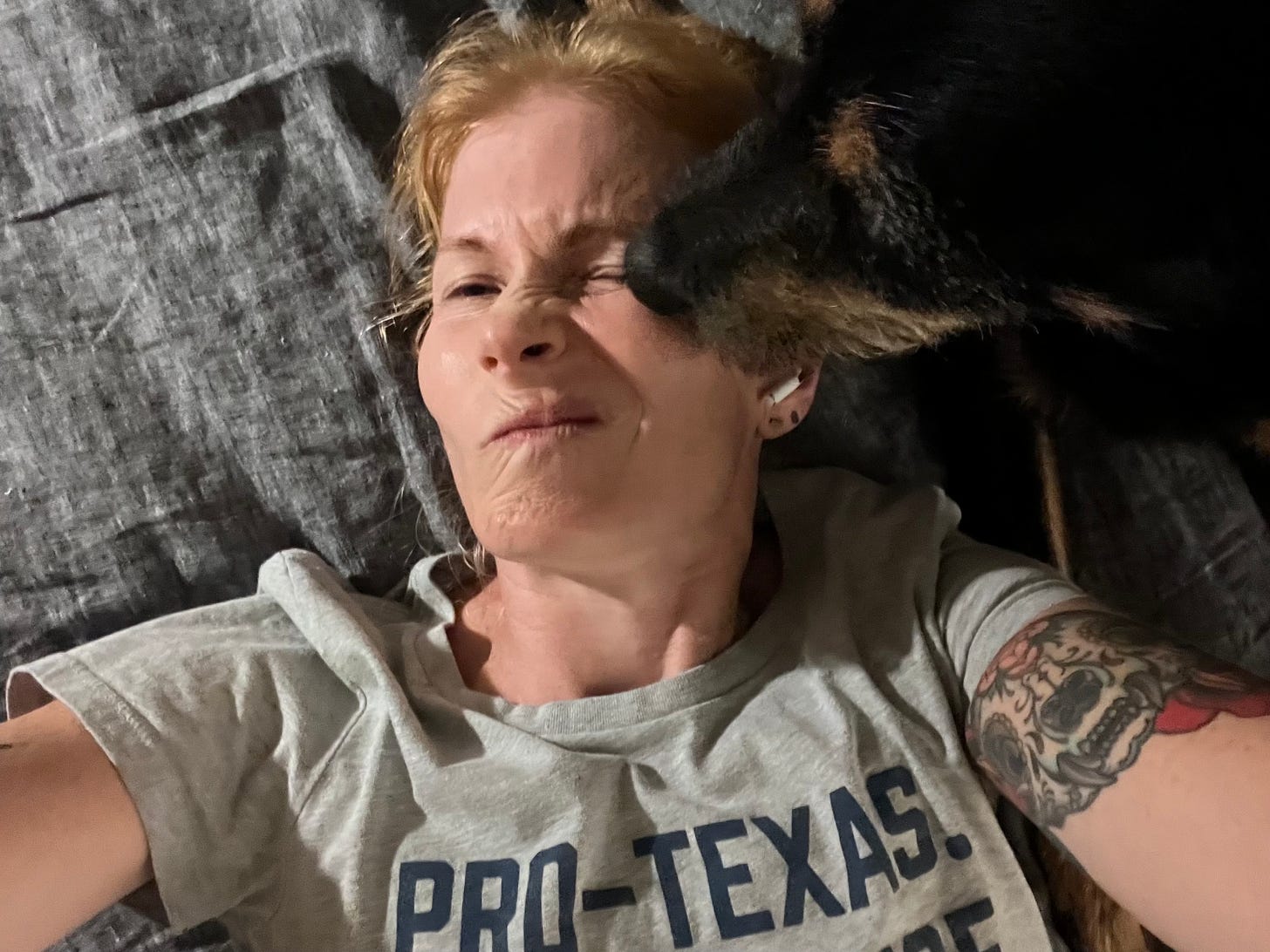
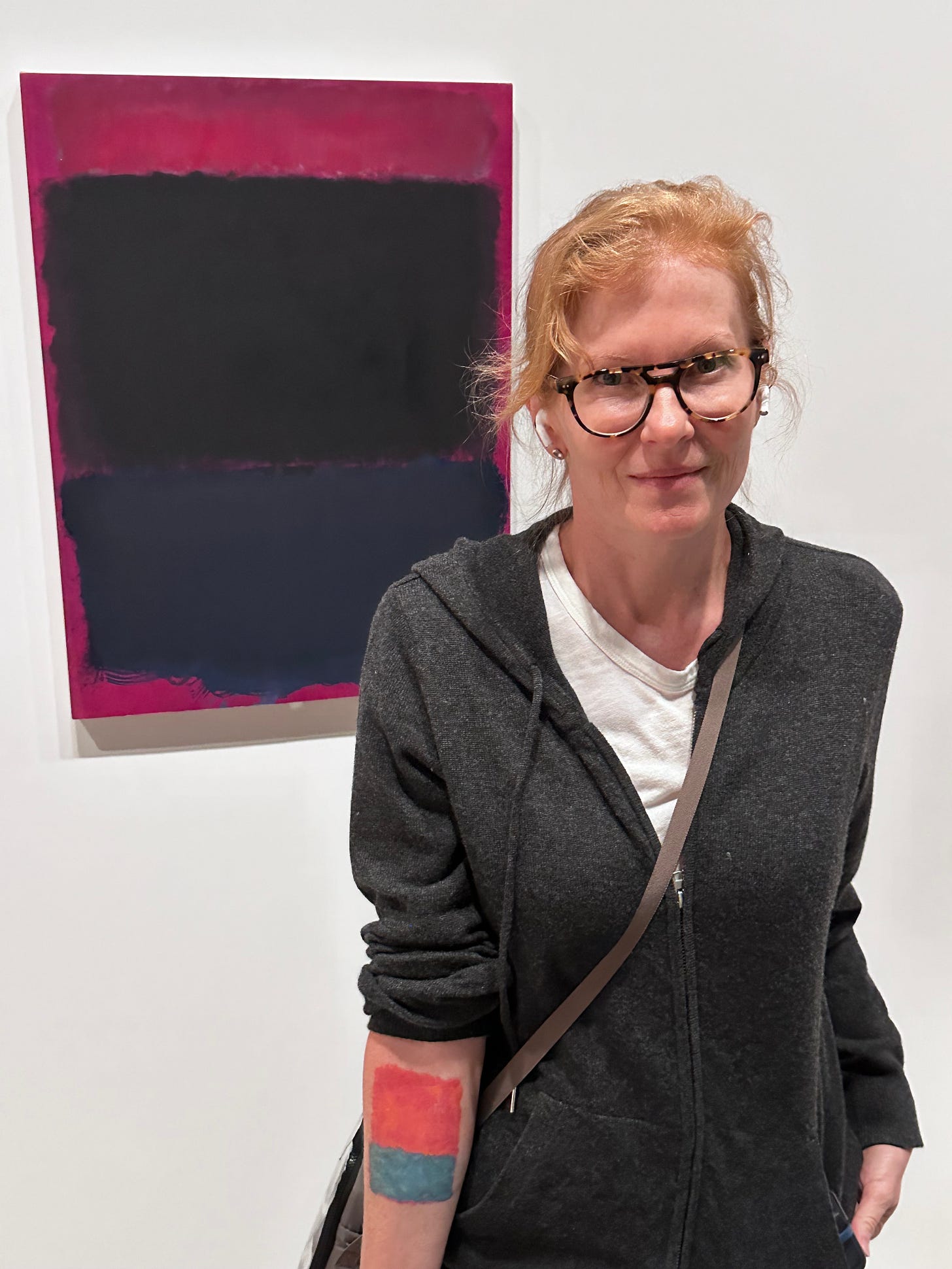
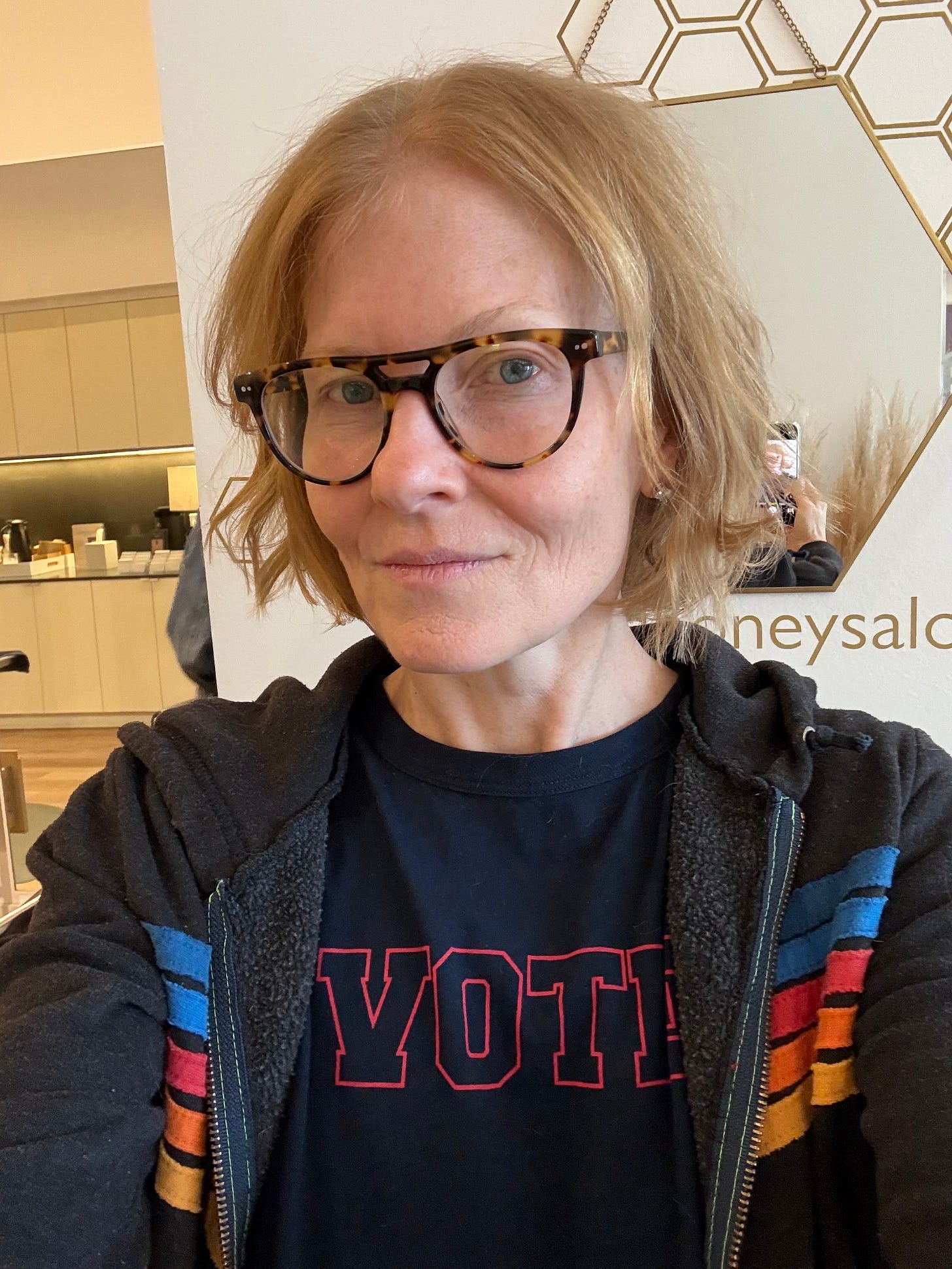
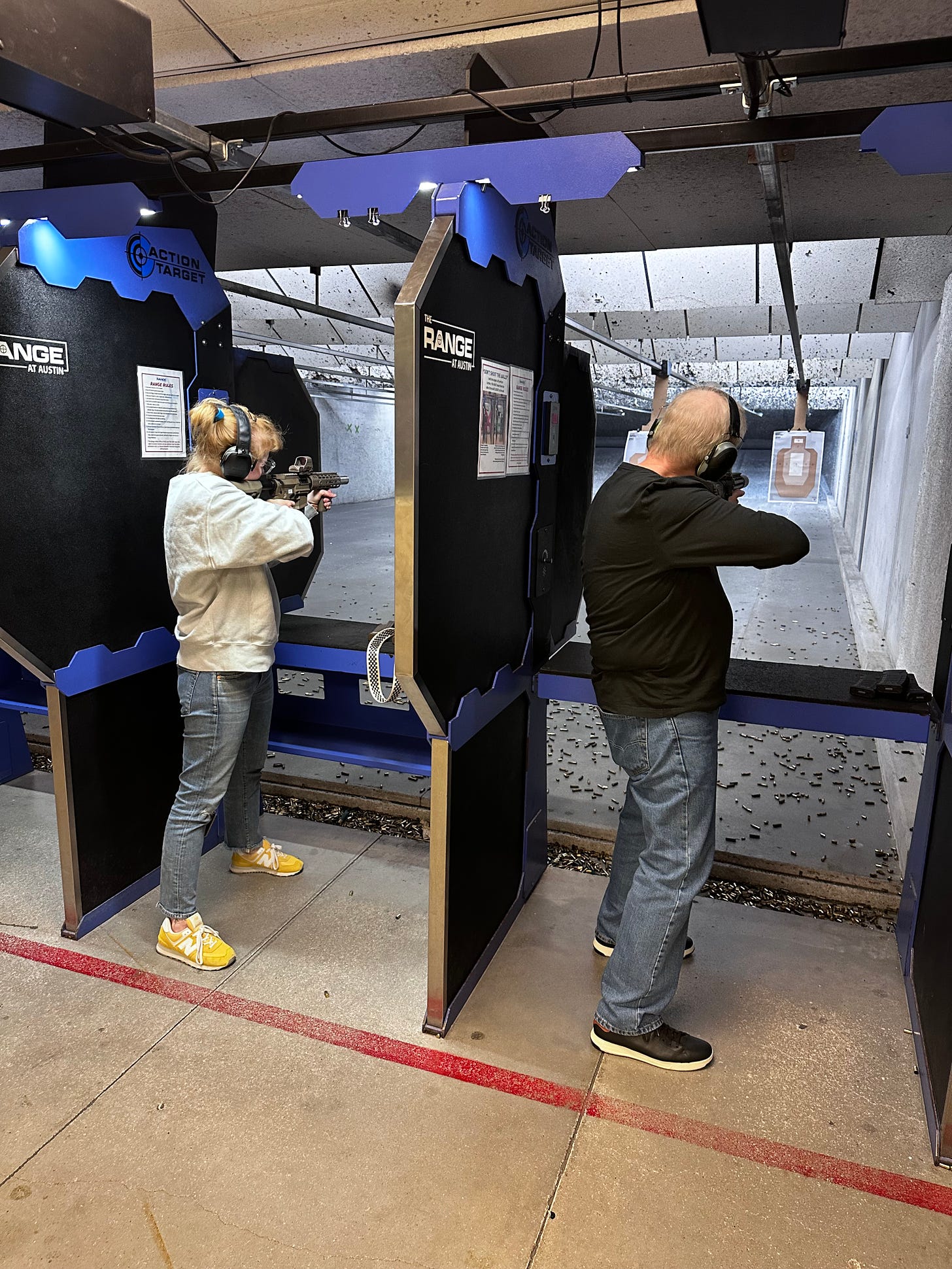
A good read! I'm 66 and have been sober for 39 years ODAT. I stopped because I decided I wanted to live; I was sick and tired of being sick and tired. I especially liked your comment about "another feeling coming along" because that is so true: "This too shall pass" is an important thing to remember, whether you're in the valley of the shadow of death or at the top of the mountain. It's truly a journey not a destination. Thanks for sharing.
Good to read! I’m 62 and have been sober for 42 years. I didn’t stop out of nobility. I stopped because I knew my drinking even then wasn’t normal- the gift of desperation led me to a recovery program. I sincerely believe that my mother’s prayers helped for many, many years.